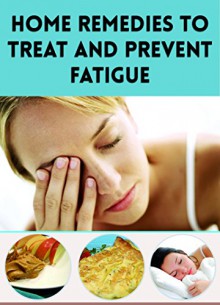Now a days, way too many people live through their day feeling weary and completely exhausted. In a survey of American workers, 38 percent reported feeling fatigued within a 15-day period. In a 2005 survey of 4,500 male and female twins, about 37 percent of the people reported extreme fatigue at...
show more
Now a days, way too many people live through their day feeling weary and completely exhausted. In a survey of American workers, 38 percent reported feeling fatigued within a 15-day period. In a 2005 survey of 4,500 male and female twins, about 37 percent of the people reported extreme fatigue at some point in their lives. In addition, nearly 23 percent had experienced prolonged fatigue (longer than one month), and almost 16 percent had chronic fatigue (lasting more than six months). 75 percent of the women reported fatigue, versus 25 percent of the men. So, one could say that women are about three times as likely to feel fatigued as men. The women also started feeling fatigued at younger ages.
I’ll leave it up to our readers to figure out why women are more vulnerable, though differences in genetics, hormones, and social demands (working and caring for family) could certainly be factors. The most widespread reasons for feeling worn out are sleeping too little and being overscheduled—two familiar and coexisting problems in America. Another linked issue is chronic stress overload, which leads to burnout (emotional detachment, apathy, and low energy). Ill-advised yet common solutions to coping with stress by eating junk food, smoking, or drinking heavily only aggravate the problem.
Fatigue can be physical, mental, and emotional. Monotonous activities can tire you out. If you have a more intense workout than usual, you’ll feel physically depleted. If you’ve been brainstorming for hours, your head will feel fuzzy. Staring endlessly at a computer screen fatigues the eyes. If you’ve been upset or have been consoling someone else, you may feel emotionally exhausted.
The answer to overdoing it is to give yourself breaks. Fatigue is a common reaction to straining yourself. If you feel better after you relax and get a good night’s sleep, you’re okay. Nonetheless, you should take care not to wear yourself out very often. A number of medical conditions can also cause permanent physical fatigue unrelieved by rest, including the following:
1. Anemia makes you tired because your red blood cells aren’t carrying sufficient oxygen.
2. Acute infections are often accompanied by fatigue, as well as other symptoms (e.g., body aches, sore throat, cough, vomiting, and diarrhea).
3. Chronic infectious diseases such as AIDS, viral hepatitis, mononucleosis, and Lyme disease are also exhausting.
4. Sleep disorders such as obstructive sleep apnea, restless legs syndrome, and narcolepsy cause daytime sleepiness.
5. Psychological disorders, particularly depression, interfere with sleep and lead to daytime fatigue.
6. Other chronic diseases associated with fatigue are diabetes, heart failure, hypothyroidism, chronic obstructive lung disease, cancer, adrenal insufficiency, and celiac disease (or other conditions that impair intestinal function).
7. Surgery, even a minor procedure, can set a body back.
8. Pregnancy, while not a disease, shifts hormones and puts new demands on the body.
9. Medications such as antihistamines, some antidepressants, chemotherapy, and some blood pressure medications cause sedation or fatigue. (If you take a medication that has sapped your energy, discuss the matter with your doctor. Please don’t abruptly stop a prescription medication on your own.
Fatigue can actually be prevented and cured very easily. The remedies in this book are the ones that work best. Good luck!!
show less

